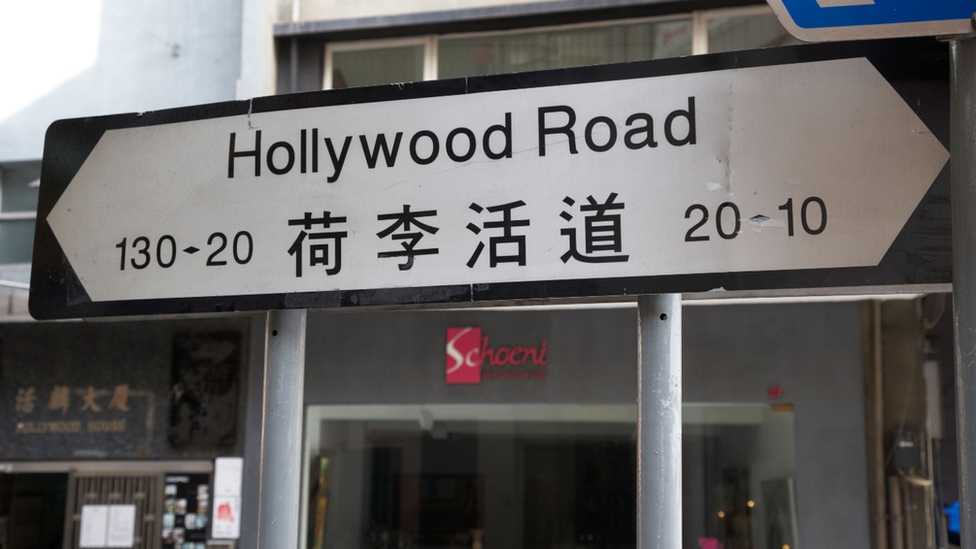China plans restrictions on 'foreign' place names
- Published

It's not clear if the changes will affect Hong Kong and its famous Hollywood Road
China is planning to introduce new restrictions on place names because of concerns that too many fail to reflect national culture.
The country's civic affairs minister, Li Liguo, wants anyone naming sites such as bridges, buildings and roads to take inspiration from Chinese history, instead of opting for foreign names like "Manhattan Plaza", Beijing News reports, external. Existing names which fall foul of the requirements will also be changed, according to the paper.
Mr Li says "cleaning up" place names will "strengthen and standardise cultural protection", and promote China's cultural heritage. He's in charge of a State Council survey of geographical names, an effort which started in 2014 and has another two years to run.
According to the Xinhua news agency, external, the first places to be renamed will be any that "damage national dignity" or conflict with core socialist values, as well as those which have attracted the most public complaints. Places which promise more than they deliver are also in the government's sights - so anywhere adopting Venice as part of its name will need to have more than just a pond, the agency notes.
Social media users are divided on the issue, with some pointing out that foreign names are often chosen as a way of celebrating ties with other cities or countries. There's plenty of support, though, with one person writing, external: "They really should change, or else we'll feel there are no Chinese historical elements!" Other comments are more mocking, with one user suggesting some new names, including "Core Values Road" and "The Rule of Law Building"; and another saying: "Eventually they will all be called 'the road to socialism'!"
Next story: Koreans polled on drink-drive changes
Use #NewsfromElsewhere to stay up-to-date with our reports via Twitter, external.